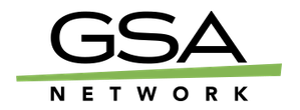Harley with members of the National Youth Council at the 2019 YES! Conference in San Francisco.
By Harley W.
Until very recently, I never gave thought to my identity. Maybe it was my own internal animosity, or maybe it was the lack of wanting to know, but I just didn’t. I knew I liked the same gender, but other than that, I never took the time to get to know myself. That changed when I found a community of people like me.
In early 2019, I attended a local haven for kids and teens called Kaleidoscope Youth Center. I might as well have been living there, considering how much time I spent in the building. One day, I was walking down the familiar halls when a staff member asked, ”How would you feel about attending National Gathering in New Mexico?” My 14-year-old self nearly laughed in her face. Impossible, I thought. A couple of months later, I was sitting on my first fight to meet trans and queer youth of color from all over the U.S.
National Gathering is where I learned about the National Youth Council at GSA Network. I was so fascinated by the idea of joining that I sat in my bed filling out the application the very day I heard about it. Just as I had doubts about being able to go to National Gathering, I never thought I’d be be selected to be a member. But, once again, I was accepted.
With my newfound community, I finally welcomed and asked new questions about myself, like “How would you like to dress?” and “What name do you want to be called?” I didn’t have answers to these questions initially.
After years of not thinking about my own identity, I spent a long time trying to put a label on myself, as if I were a doctor trying to make a diagnosis. I wanted a name for my feelings. I couldn’t find one, which only further confused me.
It wasn’t until a fellow Council member told me about people who identify as gender fluid that I started to understand more about myself. I wasn’t familiar with that particular label, but learning more about gender fluidity helped me name that part of myself that I’d first ignored and then struggled to name.
It all just made sense.
Usually, comprehending that something made me “different” felt like a bad thing, but this time, as a member of this Council, I felt free. I didn’t resent myself. I felt so proud of my own change of thought, and I felt grateful for a new community that gave me the support and stability I never knew I needed. I know that my fellow Council members have experienced similar journeys and feelings.
I realize that being part of a community of people like me made all the difference in how I perceive myself. I now feel affirmed and seen—by myself and others.
